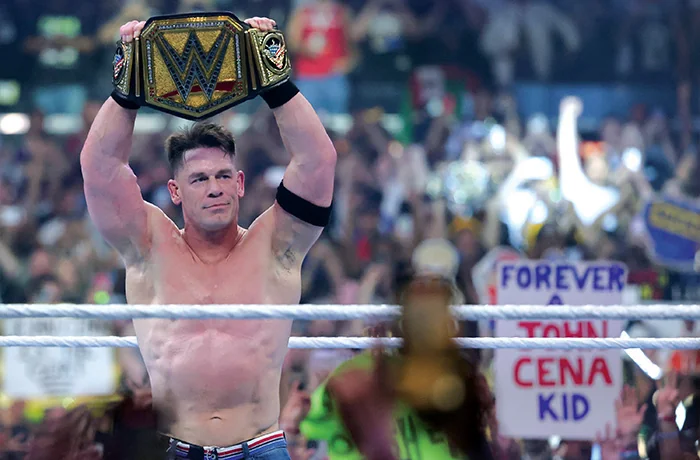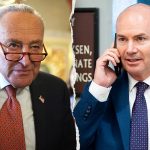John Cena walked into WrestleMania 41 in Las Vegas with the polite shuffle of a man reporting for overtime. He walked out with the belt, the boos, and a line in the record book no future star will touch: 17 recognized world championships, all in World Wrestling Entertainment, one more than Ric Flair ever claimed even on his grandest barstool nights when he was counting his territorial titles. The pyrotechnics boomed, the arena filled with half-hearted “you still got it” chants, and Cody Rhodes slipped into yesterday’s gear bag. Cena’s smile, practiced over two decades of Make-A-Wish photos, never left his face. Yet even the smile felt like heavy lifting.
The math is simple: Cena is nearly 50. He has not worked a true full-time schedule since former President Barack Obama’s second term, and the joints complain even during the Peacemaker press junkets. Yet the company rolled him straight from the WrestleMania stage into Backlash and a main-event grudge with 45-year-old Randy Orton, the only rival old enough to remember chain-wrestling him in the Ohio Valley. Orton looks fresher now, broader than Brock Lesnar in the shoulders, easier in the hips. Orton lost anyway, and the crowd told the champion he could not wrestle while the commentary team nodded along.
No one ever said Cena lacked effort. The man for whom “hustle, loyalty, respect” is a mantra gutted through the bodybuilding gimmick, freestyled in jorts until the rhyme scheme died, wore the bright colors Vince McMahon favored for Saturday-morning action figures, and let CM Punk turn his cornball permanent-champion gimmick into a punchline even as Punk used their feud as a springboard to stardom. When Lesnar returned from the Ultimate Fighting Championship to throw WWE stars for real, it was Cena who volunteered to stand there and take the German suplexes, counting them for the audience on the way down. He worked Christmas house shows, opened pay-per-views, closed them, filmed Experian credit report and Hefty trash bag commercials at 3 a.m., then jogged back to the ring because the script said so.

That obedience has made him the perfect postmodern superstar. He can pivot from Mandarin-language contrition — “I’m very, very sorry” — to a late-night talk-show punch line without blinking. The apology, delivered on Weibo after he misidentified Taiwan, played on loop in Beijing and in every wrestling meme thread. WWE also owns the trademark on the name on his driver’s license, so every time a movie poster screams JOHN CENA, a quiet percentage trickles back to Stamford headquarters. Cena calls that arrangement a joint venture and says it proves his gratitude.
The bad-guy turn came because Rhodes, dressed like a discount Homelander but seemingly unwilling to make the smart move to the dark side, was running out of breathing room. Cena, a gifted straight-man comedic actor, called him on the droning promos and offered to be the villain himself. The switch felt forced — nobody buys that the after-school spokesman suddenly kicks puppies — but the company needed fresh paint. So the new champion snarled, mocked Rhodes’s bad acting and Orton’s ancient drug-test suspension, and boasted that he has never failed a test of his own. The delivery is perfect and the words are precise — they always are.
Every Friday, the announcers revive the “you can’t wrestle” chant that most fans forgot a decade ago. It works like an infomercial selling your own buyer’s remorse: Tune in, watch an aging icon fail gracefully, come back next week for the same confession. There is no kayfabe benefit to reminding people that the champion struggles to string together leapfrogs. The objective feels different — ritual exposure, the kind of public flagellation conspiracy theorists insist Hollywood elites must endure for continued relevance. Cena, who once filmed Trainwreck pretending to be a closeted bodybuilder desperate for zaftig comedian Amy Schumer’s affection, understands that the joke’s on him better than anyone.
Flair built his reputation on limousine rides and midnight blade jobs, Bruno Sammartino carried the belt like a civic honor, and Steve Austin smashed beers on his head and then drank them on the top rope. Cena got his 17th crown the way a Cheesecake Factory manager collects another Employee of the Month plaque. When he hoisted the gold in Las Vegas, the company piped in cheers while the live crowd argued about whether Rhodes deserved a rematch.
Hollywood pays him handsomely to parody himself. In Trainwreck, he made homophobic panic and self-delusion seem like a bunch of dad jokes. In Peacemaker, he straps on a chrome helmet, weeps about his bigoted father, and dances through the opening credits like a man daring you to remember when his signature move was an earnest salute. The performances are funny because Cena makes them ruthless — he offers up every square inch of his dignity, even presenting the Academy Award for best costume design while totally naked, and lets the director decide what to keep.
SOUND THE ALARM! A TRUMP-HOSTED WORLD CUP
All of it leads to the same question, the one Jesus posed 2,000 years ago: What does it profit a man to gain the whole world and forfeit his soul? Cena’s bank accounts hold close to nine figures now. The soul has been bartered away in 15-second increments, one TV commercial or finishing move kick-out at a time. The legacy, such as it is, will show a tireless employee who made the brand richer by turning himself into an endless punch line. He saluted, he lost, he apologized in whatever language the target demographic spoke, he won, he apologized again.
When the 17th reign ends — SummerSlam in August if we’re lucky, Survivor Series in November if we’re not — Cena will stand in the ring and thank the fans, thank the crew, and thank the company that still cashes checks on his birth certificate. The crowd will chant something, maybe “one more match,” but most likely “please retire.” He will smile the only way he knows how, a smile built for Make-a-Wish photos — nobody has made more wishes come true — and farewell interviews. Then he will walk up the ramp, bow-legged, stiff, smaller and more frail than he’s ever been, yet strangely lighter than when the night began. I imagine he’ll be relieved to know that part of his ceaseless hustle is over, at least for now. The existential sadness of John Cena does not come from losing what he loved. It comes from giving all of himself away and realizing the house always asks for more.
Oliver Bateman is a journalist, historian, and co-host of the What’s Left? podcast. Visit his website: www.oliverbateman.com.





















